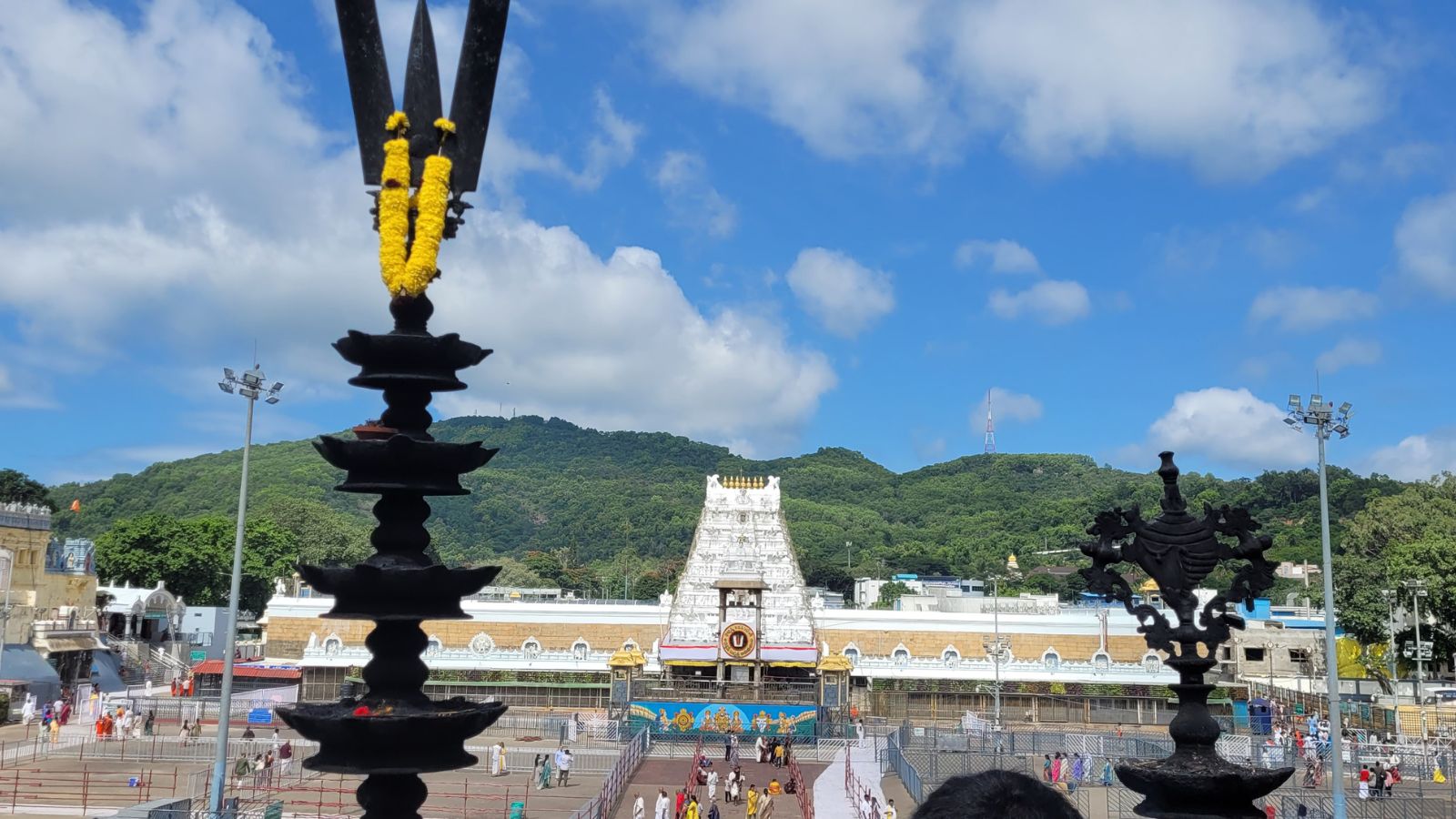Sri Venkateswara Suprabhatam is a Sanskrit hymn traditionally recited early in the morning to awaken Lord Venkateswara at the Tirumala temple in Andhra Pradesh. The word Suprabhatam means “auspicious morning,” and the hymn is a poetic invocation seeking divine blessings at the start of the day. It consists of four parts: Suprabhatam (morning invocation), Stotram (verses in praise), Prapatti (complete surrender), and Mangalam (closing benediction), with the first section serving as a gentle wake-up call to the deity.
The hymn was composed in the late 14th or early 15th century by Prativadi Bhayankara Annangaracharya, a revered Sri Vaishnava scholar born in Kanchipuram. His original name was Hasthigirinathar Annan, named after the presiding deity of Kanchipuram (Hasthigiri). He was a disciple of the Sri Vaishnava acharya Manavala Mamuni and followed the Vadakalai tradition. The Vadakalai school emphasizes the authority of the Sanskrit Vedas and the philosophies of Vedanta Desika, focusing on Vedic norms and Sanskrit texts. In contrast, the Tenkalai tradition gives primacy to the Tamil Divya Prabandham and the teachings of the Alvars, emphasizing emotional devotion and divine grace over ritual and scholarship.
Annangaracharya served as a court poet in Tirumala. The title Prativadi Bhayankara, meaning “one who strikes fear in the hearts of opponents in discourse,” was conferred upon him by scholars of Kanchipuram in recognition of his ability to silence opponents in philosophical debates.
The Suprabhatam holds deep devotional significance. It is believed that reciting or listening to it brings peace, prosperity, and the blessings of Lord Venkateswara. The chant reached national prominence through the voice of M.S. Subbulakshmi, whose soulful rendition continues to echo in temples and homes each morning.



